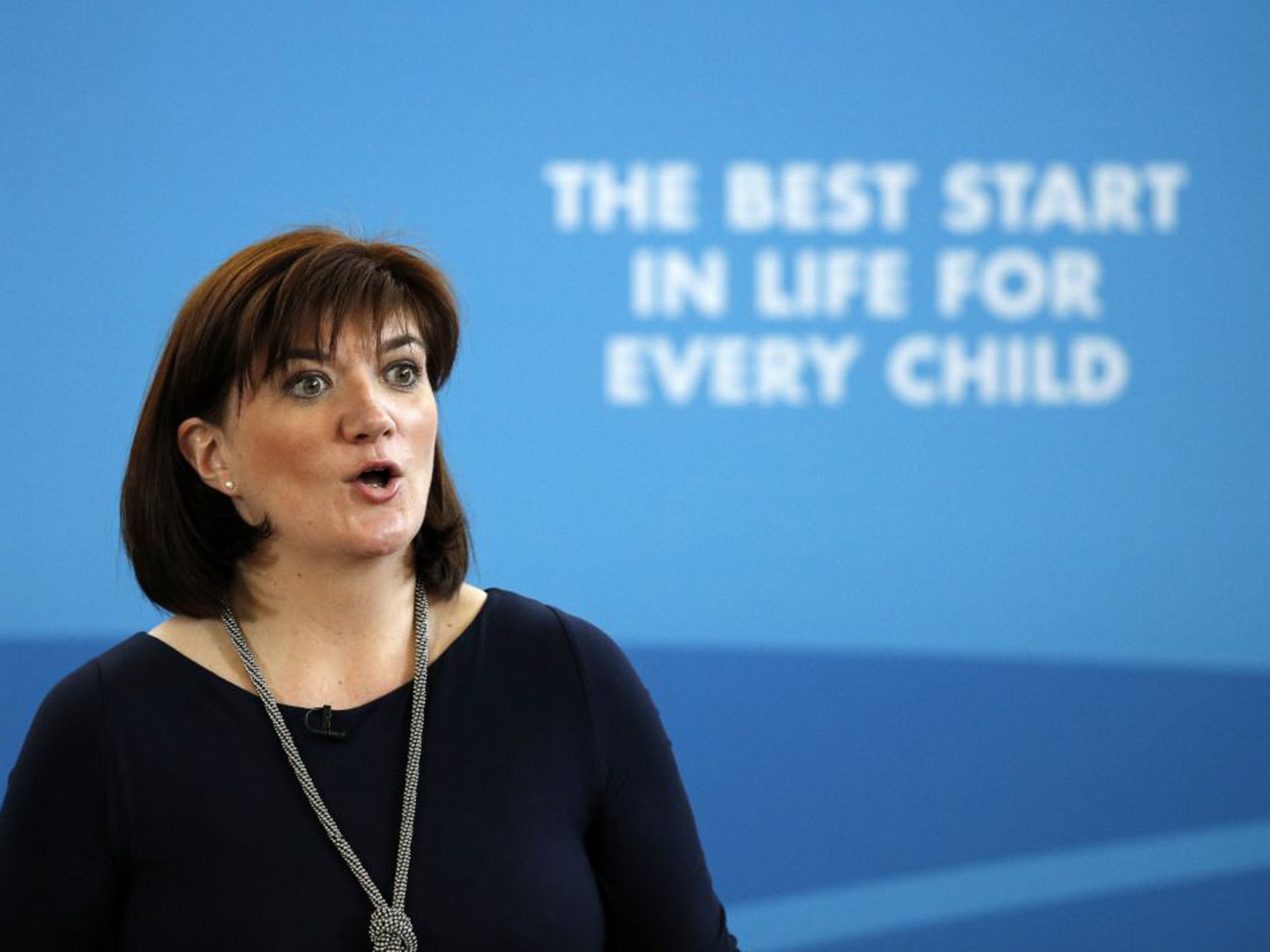Education Secretary unveils plans to extend the number of academies and free schools
Tories will send in the superheads to improve under-performing classrooms in a 'war on mediocrity'

Your support helps us to tell the story
From reproductive rights to climate change to Big Tech, The Independent is on the ground when the story is developing. Whether it's investigating the financials of Elon Musk's pro-Trump PAC or producing our latest documentary, 'The A Word', which shines a light on the American women fighting for reproductive rights, we know how important it is to parse out the facts from the messaging.
At such a critical moment in US history, we need reporters on the ground. Your donation allows us to keep sending journalists to speak to both sides of the story.
The Independent is trusted by Americans across the entire political spectrum. And unlike many other quality news outlets, we choose not to lock Americans out of our reporting and analysis with paywalls. We believe quality journalism should be available to everyone, paid for by those who can afford it.
Your support makes all the difference.Superheads will be sent to turn around failing and “coasting” schools under powers to be introduced in the Queen’s Speech on 27 May, the Education Secretary Nicky Morgan will announce.
The plans would allow the Government to intervene in any school judged to be “coasting” by sending in experts or forcing it to become an academy.
“Just good enough” is no longer good enough, Ms Morgan says. “It is not OK to be just above the level of failing.”
Before the general election, Prime Minister David Cameron promised to “wage all-out war on mediocrity”, pledging that any school that was not judged to be “good” or “outstanding” by Ofsted would have to improve.

Head teachers’ leaders criticised the plans, arguing that schools judged as “requiring improvement” were being targeted for intervention even though they were not judged to be failing.
More than 3,300 schools in England are labelled as “requiring improvement”.
But a Department for Education source said that no decision had been taken on how a school would be categorised as coasting but denied that every “requires improvement” school would be targeted. The Government’s new definition of coasting is expected to include having been judged as “requires improvement” for some time, and having test or exam results that fall below some new measure.
Brian Lightman, the general secretary of the Association of School and College Leaders, cautioned that forcing a school to become an academy was unlikely to provide a quick solution to often complex problems. “Academies or changes of school structure are not necessarily a panacea,” he said.
“Nor is automatically changing a school’s leadership the solution to bringing about rapid improvement. A carefully targeted programme of school-led support, bringing in the assistance of skilled professionals, can be effective.”
Under the current system, secondary schools are considered to be failing, and therefore eligible for intervention, if fewer than 40 per cent of their students score at least five Cs at GCSE, including English and maths, and they do not meet national averages in pupil progress.
In primary schools, the threshold for intervention is if fewer than 65 per cent of pupils get Level 4 in reading, writing and maths and a below-average number of pupils make the expected amount of progress.
Under the plans, England’s most successful head teachers would be sent into failing schools to help their existing leaders to make swift improvements.
The new powers will allow ministers to order faster action to be taken to improve failing schools. Coasting schools will also be put on immediate notice to improve, and given new leadership if they are unable to demonstrate a clear plan to fulfil the potential of their children.
The measures are designed to spread opportunity and educational excellence to every part of the country so that children from every background get the best possible start in life.
As Ms Morgan will say: “Our big priorities will be to speed up the process for tackling failing schools; extend our academies programme to tackle ‘coasting’ schools; and deliver on our commitment to open new free schools.
“First, we will take new powers to step in from the moment that a school is found to be failing. From day one, regional schools’ commissioners will be able to bring in new leadership and support from other excellent schools and heads, and we will speed up the process of turning schools into academies to make sure that new expert leadership is found for all schools that need it as quickly as possible.
“Second, we’ll introduce new powers to intervene not just in failing schools, but in coasting schools – with a clear message that it is not OK to be just above the level of failing. These schools must improve too, and will be put on immediate notice and required to work with our team of expert head teachers.
“Those that aren’t able to demonstrate a clear plan for improvement will be given new leadership – we know this works in turning schools around.”
Join our commenting forum
Join thought-provoking conversations, follow other Independent readers and see their replies
Comments